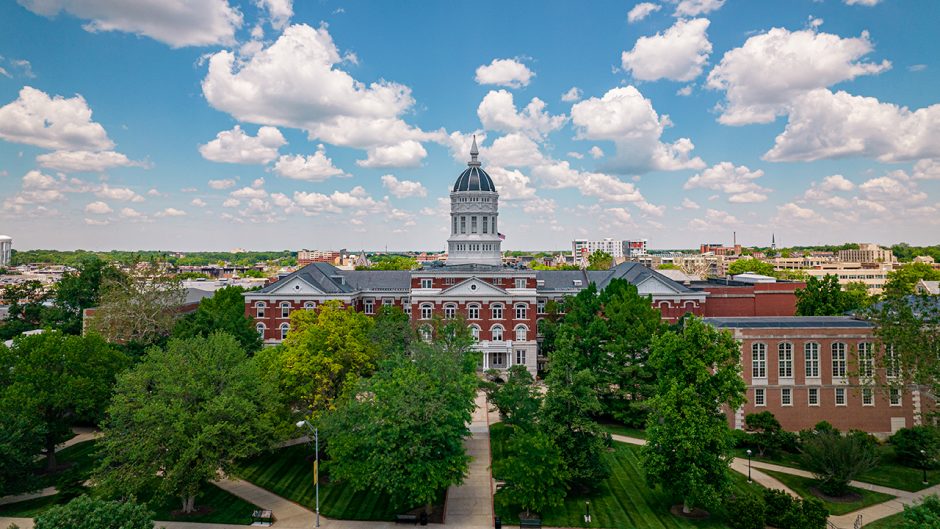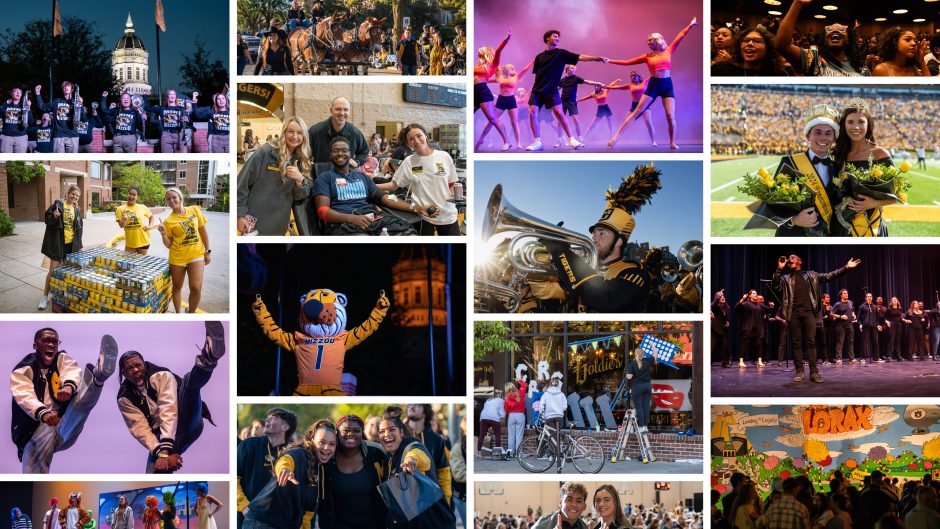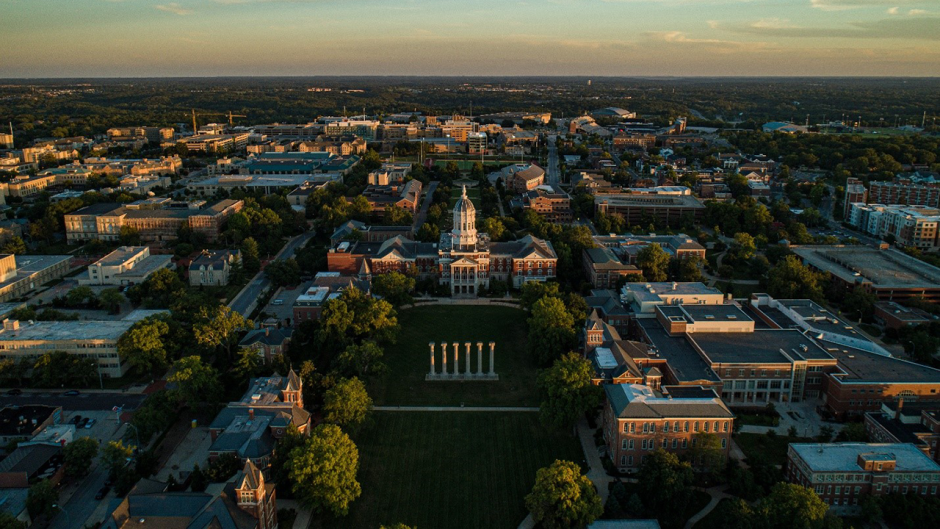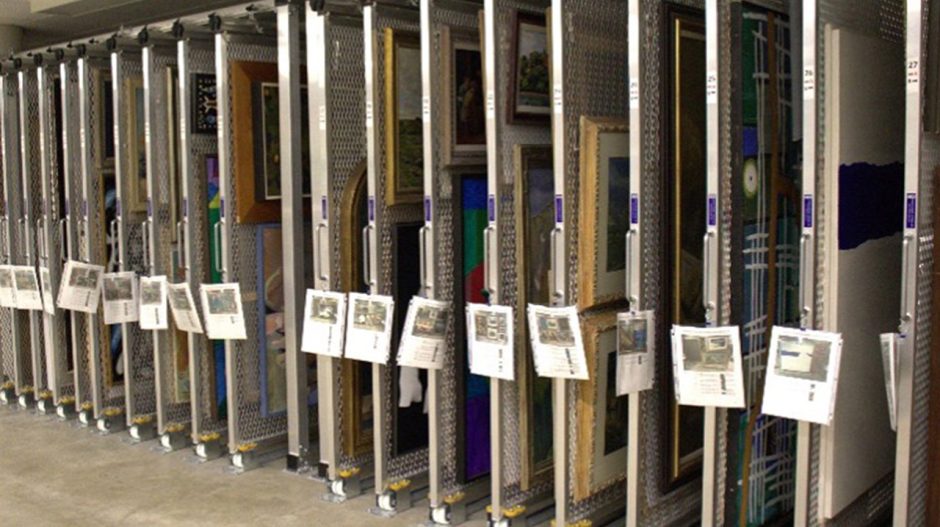Change is underway, and it’s a good thing. The events of recent months have been hard. We’ve been challenged. We’ve been scrutinized. The eyes of the world are upon us as we wrestle with weighty topics such as racism, civil liberties and educational governance — loudly and quietly, in solidarity and in conflict. We’ve been spurred to re-examine our priorities and reinvigorate our leadership.
But what Mizzou has experienced in the fall 2015 semester represents an opportunity for real progress. This is what universities do: We think, listen, challenge, reflect and push one another to be better. Right now we have the chance to buoy our (many, many) strengths, to learn from missteps and to make an even better Mizzou — to become a more inclusive place for Tigers of all stripes.
Here are a few things you should know:
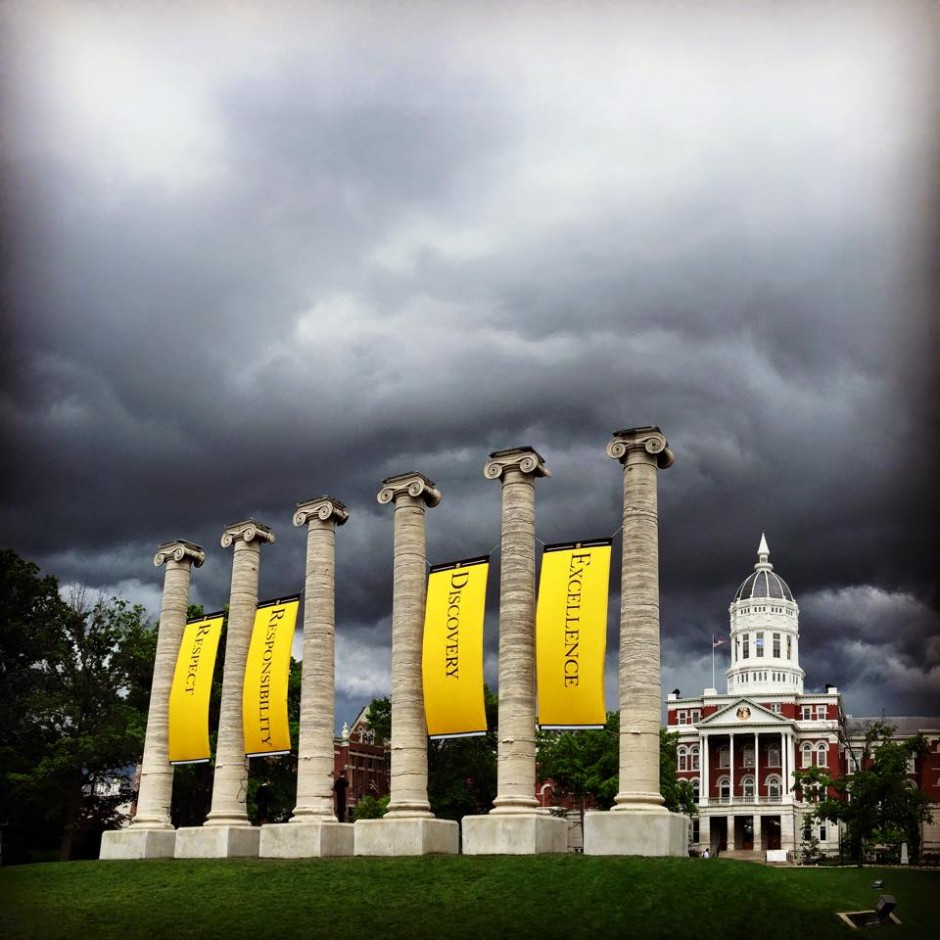 1. The problems we face are much bigger than any one person or any one issue.
1. The problems we face are much bigger than any one person or any one issue.
The situation at Mizzou in fall 2015 cannot be reduced to any one administrator, any one student or group of students, or any one problem. Many incidents and decisions contributed to the climate: cuts to graduate student health insurance benefits and teaching positions; changes to refer-and-follow privileging processes at our health system; multiple acts of racism, including racial slurs and vandalism; multiple demonstrations related to racism, including walkouts, boycotts, a Homecoming parade protest, “Racism Lives Here” rallies, a student’s hunger strike and a football team strike; the release of a study revealing the prevalence of sexual assaults on campus; a law suit regarding conceal-and-carry restrictions; the burning of an ISIS flag on the Quad; a Post-It note protest of a statue of Thomas Jefferson, a slave owner, and a pro-Jefferson counter-protest; votes of no confidence in R. Bowen Loftin; and several statements of concern. Things were complicated.
2. Students always have pushed us to be better.
Progress can be slow, and sometimes activism and demonstrations serve as catalysts that shift the culture in a positive way. Think about it. Where would we be without students pushing to make us better? When the University of Missouri was founded, there were no women and no people of color in the student body. Now more than half of all Mizzou students are women, and in fall 2015, 176 years after our founding, we set a record in enrollment of underrepresented students; since 2000, we’ve seen a 90 percent increase in black student enrollment. But our work isn’t done. We still have inequalities. We still grapple with discrimination. We still don’t consistently treat one another with fairness, respect and kindness. We can do better.
3. It’s not just Mizzou.
In the fall 2015 semester, protests similar to those led by Mizzou students have taken place at universities throughout the United States, including the University of Cincinnati, Claremont McKenna College, Ithaca College, Amherst College, Yale University, Brown University, Princeton University and Harvard University. This is a time of change, and Mizzou is helping to lead the way.
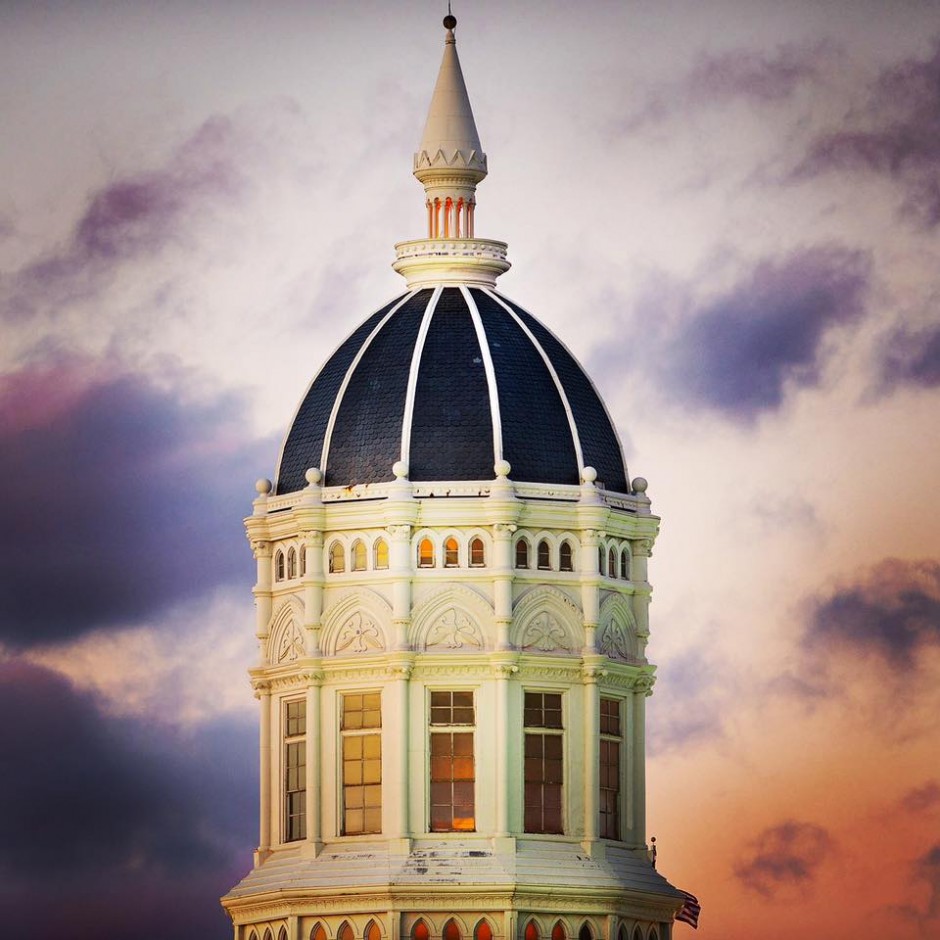
4. We’re in good hands.
After Tim Wolfe stepped down from his position as University of Missouri System president and R. Bowen Loftin stepped down from his position as University of Missouri chancellor, two adept and experienced administrators took their places, temporarily. Former MU Deputy Chancellor Mike Middleton came out of his (very brief) retirement to take over duties as interim president of the UM System. Hank Foley, MU’s vice chancellor for research and graduate studies — and the UM System’s executive vice president for academic affairs, research and economic development — took over duties as interim chancellor. Both of them have tremendous experience and knowledge. We do not yet have a permanent replacement for either position, but we definitely have highly qualified people at the helm. In fact, Jesse Hall and our schools and colleges are packed with smart people who collectively and ably run the university every day.
The difference between the chancellor and the president:
The chancellor is in charge of the University of Missouri, aka MU, aka Mizzou. Mizzou is both a freestanding university and the flagship campus of the University of Missouri System, aka the UM System. The other three campuses are the University of Missouri-Kansas City (UMKC), the University of Missouri-St. Louis (UMSL) and the Missouri University of Science & Technology (Missouri S&T). The president of the UM System oversees all four campuses. In some university systems, these titles are reversed.
5. We are committed to safety.
Our campus is calm, and the recent protests were peaceful. There was no destruction of property, and no one involved was physically harmed at any time.
How we keep Tigers safe:
Mizzou has more safety measures in place than many other universities. We are one of the few campuses in the United States to have our own dedicated police department. We have blue-light emergency phones located throughout campus. We provide crime-prevention and personal-safety training. Our residence halls are locked, accessible only to student residents with proper ID cards. We also have emergency alert systems, including email, text, phone and social media alerts. Students, faculty and staff can sign up at mualert.missouri.edu.
6. We support civil liberties.
Mizzou supports freedom of expression, academic freedom and the robust exchange of ideas and knowledge. We comply with Missouri State Bill 93, the Campus Free Expression Act, which protects peaceful, lawful, noncommercial demonstrations and free expression in the outdoor areas of public university campuses. Mizzou also follows a code of conduct and anti-discrimination rules, which prohibit harassment, threatening behaviors and abuse. Finding a balance between protecting First Amendment free-speech rights and protecting students from harassment can be tricky, especially in the midst of demonstrations and conflicts. The key: treating one another with respect. Usually it’s that simple.
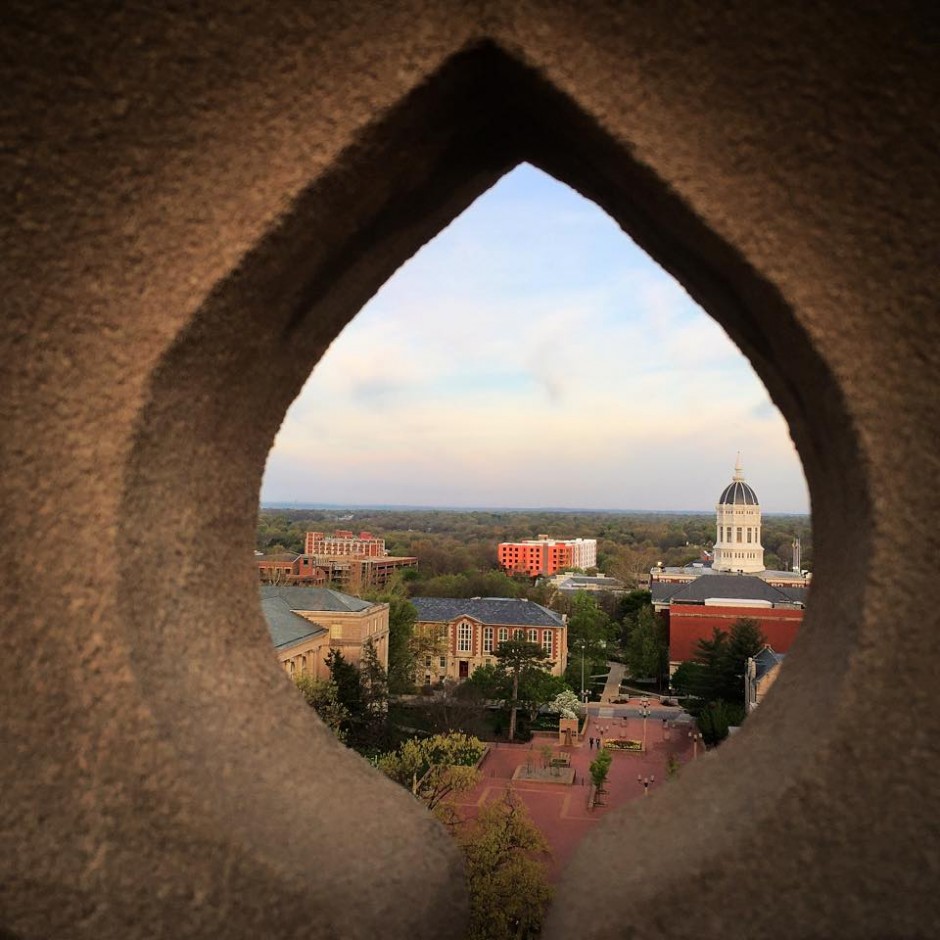
7. The regular business of education has continued all semester.
Overall, the work of the university has continued. Classes have been held every school day all semester. Media reports might have painted a picture of Mizzou in a state of mayhem — and certainly some students might have been afraid for a short time — but teaching and learning never stopped. Everyone at Mizzou is here for education. During protests, classes continued as scheduled, and students who camped on Carnahan Quad kept going to their classes during the day. Special events and activities were held as usual.
8. Education is more than academic pursuits.
Higher education involves disseminating knowledge, conducting research, exchanging ideas and having a wide variety of eye-opening hands-on learning experiences in an academic environment. It also includes responsible citizenship. It entails learning to understand, appreciate and interact with the people of the world, the vast majority of whom are different from any one of us. “Diversity” and “inclusion” aren’t just buzzwords. Addressing diversity is about knowing how to function in the world as a thinking, respectful human being among other human beings on a day-to-day basis. We’re working to maintain a healthy campus climate that fosters this kind of respect.
9. Personnel matters are private.
We treat all Tigers with fairness and respect, and that includes respect for privacy. When a complaint has been made by or against a faculty member or staff member, any action against them should be private. That’s how we operate. It’s also the law. We know people are curious about some Mizzou employees who have been in the news lately, but we won’t talk about them.
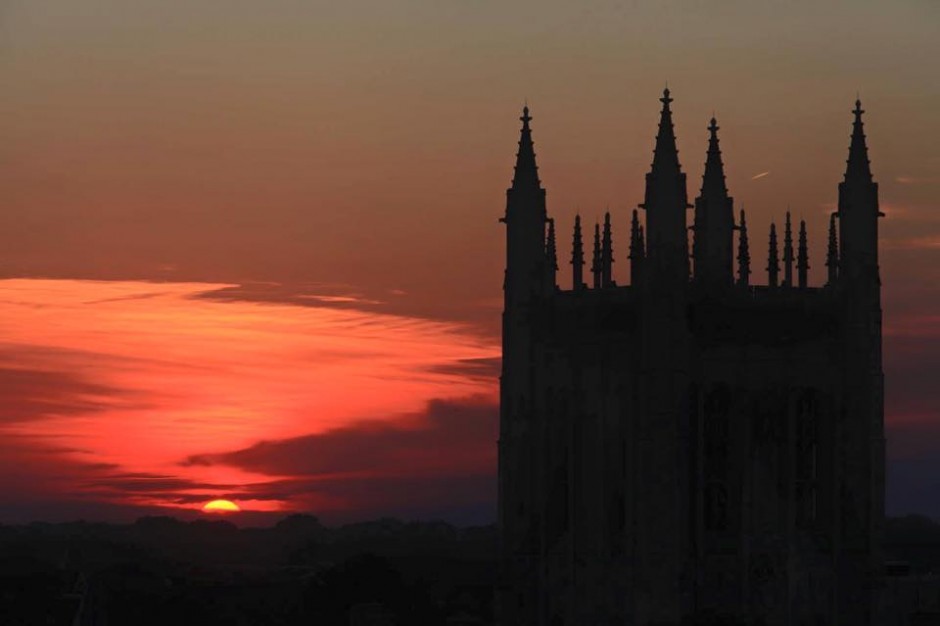
10. We have big plans.
Protests have quieted down, and some top administrators have stepped down, but Mizzou is just getting revved up. We’ve held a listening session, during which students talked to the Board of Curators. We’ve held a teach-in, during which hundreds of Tigers talked with a panel of black faculty about race and diversity issues. We’ve created a new vice chancellor position for inclusion, diversity and equity (currently and temporarily occupied by Chuck Henson, associate dean in the School of Law). We have a new Office for Civil Rights and Title IX to combat discrimination. We’re reviewing mental health services to make sure students’ needs are met. We have dedicated funds for hiring and retaining more diverse faculty and staff — and training for those doing the hiring. We’re starting two new lecture series — one on academic freedom, hate speech and social responsibility and the other on the African-American experience in Missouri. We’re also requiring diversity training for all faculty, staff and students; diversity classes for incoming students; and, effective immediately, the Diversity 101 course for senior administrators. And this is just the beginning. We want our students to be ready for the world.



